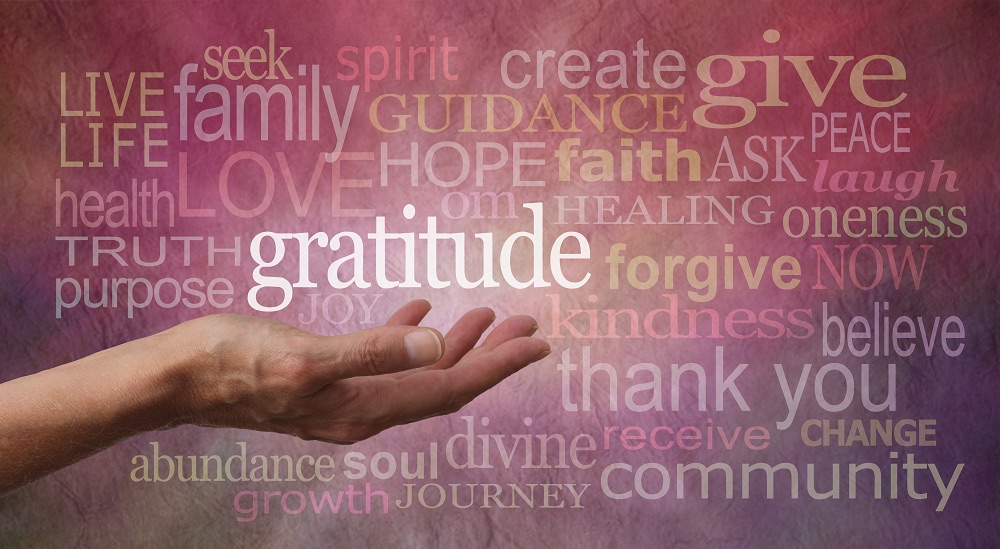
This is Thanksgiving week, and so it is a good time to take stock of how we think about gratitude and what role it plays in our daily and spiritual lives. This seems like a simple notion, but one that raises specific questions. Here’s one to start with: How do you practice gratitude?
Now, before we go much further, let’s establish what we might mean by gratitude. Here’s an example, from an unexpected source:
Gratitude is the act of feeling and communicating appreciation for the people, circumstances and material possessions in our lives. It allows us to cherish our present in ways that make us feel in abundance rather than deprived. As a result, we become more motivated, less fatigued and, ultimately, better off. …
In other words, being grateful is equivalent to feeling the presence of the Divine in our lives. It allows us to see value, virtue and benefit in everything. In this regard, gratitude can be considered the antidote to many forms of suffering. Therefore, it might also be, in its own right, an actual form of spirituality.
In fact, requiring no special training, theological studies or exhausting practice, gratitude might be the ultimate spiritual practice.
The author of the above, whose specialty isn’t spirituality but executive leadership, suggests that as a spiritual practice, gratitude doesn’t require much of us. But is that really true? If we aren’t intentional about expressing gratitude, then are we really grateful? Consider this perspective on gratitude as a spiritual practice:
The spiritual practice of gratitude has been called a state of mind and a way of life. But we prefer to think of it as a grammar — an underlying structure that helps us construct and make sense out of our lives. The rules of this grammar cover all our activities. Its syntax reveals a system of relationships linking us to the divine and to every other part of the creation.
To learn the grammar of gratitude, practice saying “thank you” for happy and challenging experiences, for people, animals, things, art, memories, dreams. Count your blessings, and praise God. Utter blessings, and express your appreciation to everything and everyone you encounter. By blessing, we are blessed. …
The continuum of words related to gratitude go from greed and jealousy; through taking things for granted and feeling entitled; to appreciation, acceptance, and satisfaction. The practice of gratitude would be an appropriate prescription whichever one of the above describes your attitudes.
The rules of the grammar of gratitude are not as simple as they seem at first glance, however. For example, often instead of rejoicing in what we have, we greedily want something more, better, or different. We can’t be grateful because we are making comparisons and coveting other possibilities.
When this happens on a personal level, when it’s our ego that is dissatisfied, then we are ungrateful. But when we want something more, better, or different for the glory of God or for the benefit of the community, this greed may be a manifestation of our devotion, our love, or our yearning for justice. And then we are grateful for these commitments.
Dan Gutman, primarily a children’s author, has an interesting take that we might consider as part of this conversation. He’s quoted as writing: “Sometimes we spend so much time and energy thinking about where we want to go that we don’t notice where we happen to be.”
So, for our discussion this evening, we’re going back to our starting point with these simple questions: How do you practice gratitude, and what role does it play in your daily or spiritual life? Writer Emmanuel Dagher has expressed this view of gratitude: “When gratitude becomes an essential foundation in our lives, miracles start to appear everywhere.” What do you think of this view, and is this something you have experienced?
Join us for a conversation about gratitude this evening as we head into the holiday season. The discussion begins at 7pm at 313 Pizza Bar in downtown Lake Orion.